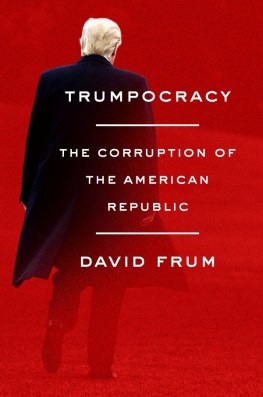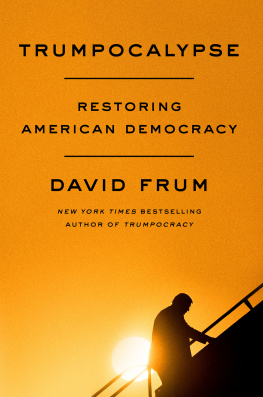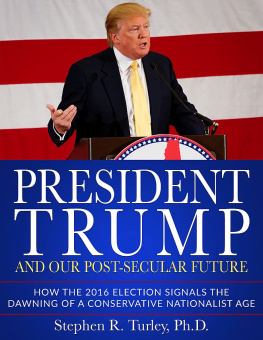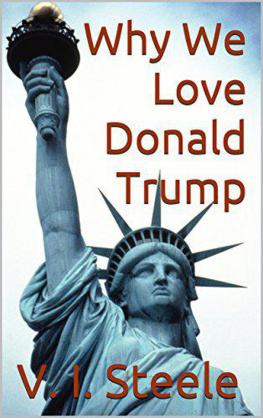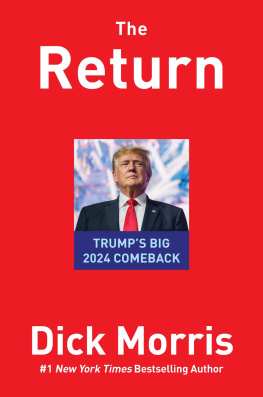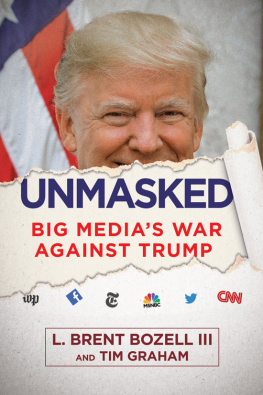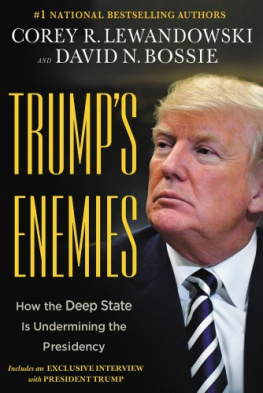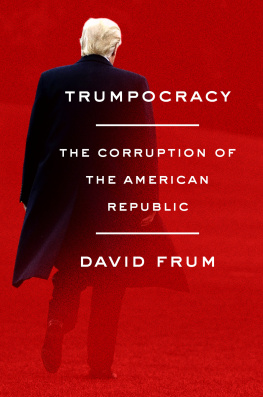To my children,
Miranda, Nathaniel, and Beatrice.
You teach me more than I taught you. This battered world your elders bequeath you: you will make it better. In admiration and love.
Contents
Democracy is a work in progress. So is democracys undoing.
Between 1975 and 2000, countries in every continent turned from repressive regimes to the rule of law, away from dictatorships of a single man or a single party toward multiparty democracy. Since then, democracy has gone into retreat. From Russia to South Africa, from Turkey to the Philippines, from Venezuela to Hungary, authoritarian leaders have smashed restraints on their power. Media freedom and judicial independence have eroded. The right to vote remains, but the right to have ones vote counted fairly may not.
Until the US presidential election of 2016, the global decline of democracy seemed a concern for other peoples in other lands; a matter for US foreign policy, yes, but not for Americas internal affairs. That complacent optimism has been upended by the political rise of Donald Trump.
The crisis is upon Americans, here and now.
I write this book in the midst of that crisis. My choice of timing imposes on this project many risks of error and misunderstanding. In the rush of immediate controversies, we can overemphasize things of no lasting consequence and overlook things that will prove supremely important.
But if its potentially embarrassing to speak too soon, it can also be dangerous to wait too long.
I sometimes wonder what would have happened if some forward-thinking member of Congress had devoted his or her career in the late 1990s to fighting for the hardening of airline cockpits against hijackers. He or she would have battled a cost-conscious industry, faced election opponents lavishly funded by airline lobbyists, and might have prevailed just in time to prevent the September 11, 2001, attacks from taking the form they didmeaning that nobody would ever have known the service that member had rendered. Instead, he or she would forever be known as that bore who droned so uselessly about a threat that never materialized.
Not all premonitions come to pass. But if we are saved, we never know for certain what we were saved from.
Even now, the severity of the Trump challenge to American democracy remains a disputed question. Some more tradition-minded Republicans will point to the Trump administrations chaotic decision making and policy failures as reassurance. How can he be an autocrat when he botched his own agenda in Congress? He cant do anything for fifteen consecutive minutes, let alone overthrow a system of government that has lasted more than two hundred years.
The buried premise in these assurances is that the only leaders we need to fear are those who are strategic, methodical, and deftand that the only threats a democracy need worry about are open and overt
So it is now. The thing to fear from the Trump presidency is not the bold overthrow of the Constitution, but the stealthy paralysis of governance; not the open defiance of law, but an accumulating subversion of norms; not the deployment of state power to intimidate dissidents, but the incitement of private violence to radicalize supporters. Trump operates not by strategy, but by instinct. His great skill is to sniff his opponents vulnerabilities: low energy, little, crooked, fake. In the same way, Trump has intuited the weak points in the American political system and in American political culture. Trump gambled that Americans resent each others differences more than they cherish their shared democracy. So far, that gamble has paid off.
Democracy, as you were taught in high school civics, is a word that traces its origin back to two Greek words: the word for people and the word for rule. I call this book Trumpocracy because it is a study of rulership, not a study of personality. My topic is President Trumps power: how he has gained it, how he has used it, why it has not yet been effectively checked.
An American president is not some tribal chief, ruling by personal charisma and brute force. He (or someday she) works through systems: through a party in Congress and the states, through supportive media organizations, through national political networks of donors and voters, through the hundreds of staffers included in the term the White House, and through the thousands of senior functionaries who together administer the executive branch.
This book is the story of those who enable, empower, support, and collaborate with Donald Trump. Many of those people have found ways to express their personal discomfort and disquiet with Trump. Those expressions may well be to some greater or lesser degree sincere. They may someday even become important. But as of the time of the publication of this book, they remain ineffectual.
If (when?) his enablers withdraw from Donald Trump, he will be left isolated and helpless, a dead tooth in the gums of the US government. Yet the opportunity he discovered and the danger he presented will not end with Donald Trumps career. The vulnerabilities Trump exploited will remain vulnerabilities still. Political decisions and economic trends have deeply riven the contemporary United States along lines of class, race, region, national origin, and cultural identity. Even the bonds between men and women have become attenuated. Those are not rhetorical claims; they are measurable facts. Diversity brings distrustand the mutual distrust among Americans has been Donald Trumps most important political resource.
Since the election of 2016, much has been written about the campaign decisions that supposedly brought the United States to its present pass. Why didnt Hillary Clinton commit resources here instead of there? Why visit this state instead of that? I propose we put the spotlight on the voters rather than the candidates; on longer-term trends, not dramatic incidents; on the game as it is played, not the ballyhooed game changers who so seldom actually change anything.
Even before Donald Trump thrust himself forward as a presidential candidate, American politics had been veering toward extremism and instability. Trump seized a dark opportunity, but that opportunity had been opened and enlarged for him by others. Trumps election was a system failure, but the system did not fail out of the wild blue yonder.
Institutions do not matter for themselves. They matter because of the way they serve, or fail to serve, the people of the country. Trumpocracy has left Americans less safe against foreign dangers, has diverted their money from its proper purposes to improper pockets, has worked to bias law enforcement in favor of the powerful, and has sought to intimidate media lest they report things the public most needs to know. To shrug and say, What does it all matter? is not only to dismiss the poor and the vulnerable but to submit your own interests to the mercy of the greedy and unscrupulous. It is to submit to life as a subject rather than a citizen.
A human catastrophe is unfolding on the US territory of Puerto Rico as the editorial process for this book comes to its close. I do not know the ultimate toll in human life, but the whole world has caught its first glimpses of the scale of suffering on the island in the wake of Hurricane Maria. This is what it means for government to fail. Trumps government has failed not only because of indifference and incompetence, although he abounds in both, but because from the start it has been redirected from the service of the public to the aggrandizement of one domineering man and his shamelessly grasping extended family.
Every book is a journey, and the wise reader will examine the credentials of the guide. When Donald Trump entered the presidential race in the summer of 2015, I hoped for some good from him. Could he be the wake-up call that Republicans needed? Trump, youll recall, launched his campaign not only with name-calling, but also with a fresh message. You can find them archived at DavidFrum.com.)

